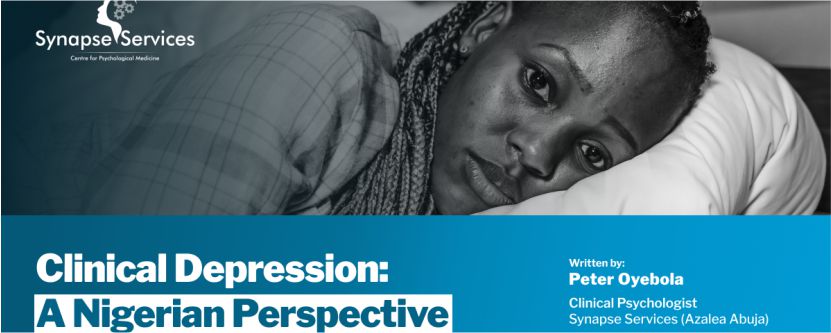
Clinical Depression: From a Nigerian Perspective
Written by Clinical Psychologist – Peter Oyebola
16th August 2023
Let's be real, we all know at least one person who always appears unhappy, easily irritable (snappy), always wants to be alone, and nothing seems to be able to lift his/her spirit.
Has It Ever Crossed Your Mind That Such A Person Might Be Dealing With Depression?
Statistics
Depression, in all its forms, is a public health concern in Nigeria. According to the World Health Organization, Nigeria has one of the highest rates of depression in Africa, with an astonishing 7.3% of the population estimated to be affected by major depressive disorder.
Considering Nigeria's population of over 200 million people, this troubling statistic suggests that approximately 14.6 million Nigerians are currently living with clinical depression.
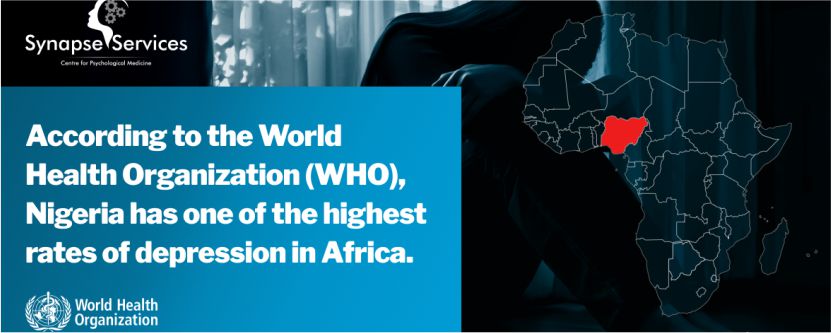
Like many other mental health conditions, clinical depression in Nigeria is grossly underdiagnose or reported, and the reason for this can be attributed to our peculiar socio-cultural perspectives and values such as:
- “Men don’t cry”,
- “Nothing is happening to you that has never happened to other people before
- “You can’t afford to let your family down at this time” etc
The Nigerian Culture
We have a culture where when we are faced with a challenge, our first point of call for solutions are spiritual homes and religious leaders, especially in cultures where people with depression are tagged as “not having faith” in God.
In many families, people with depression are said to be lazy, and accused of being the cause of their problem. Any unclear challenges are tagged spiritual or self-imposed until proven otherwise.
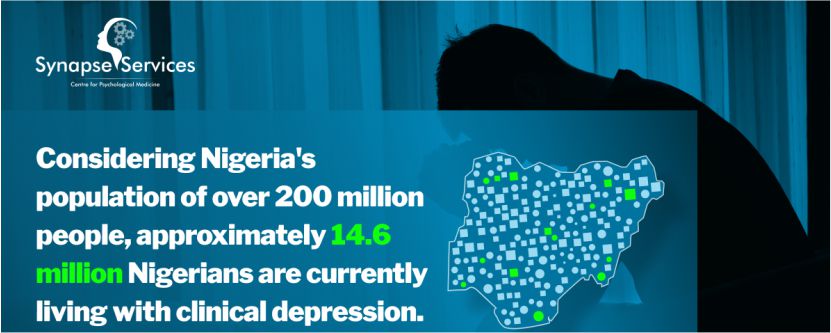
We rarely see people with depression as people who have a complex medical condition that requires professional intervention. Consequently, seeking professional help for depression is often seen as a sign of weakness.
Stigma
The issue of stigma is also a major burden affecting access to mental health services in Nigeria.
Mental health issues, including depression, are often stigmatized and clouded by misconceptions. These misconceptions stem from the cultural expectation in Nigeria that we (Nigerians) should always be tough, resilient, and able to overcome any obstacle without displaying vulnerability or seeking help.
As a result, depression is seen as a weakness or a character flaw, and as such stigmatized.
No one wants to be identified with such persons. When people open up about dealing with the issue that relates to depression, rather been receiving them with empathy and warmth, they face judgment and criticism for opening up about their struggles.
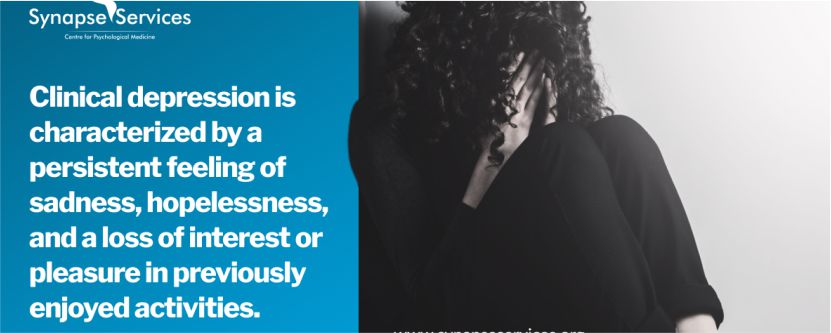
In fact, many families believe that admitting that a member of the family has a mental health condition such as depression automatically mares and devalues the image of the family.
People who see the need to seek the intervention of a qualified mental health professional, do so in secrecy, and the moment they realize that someone is about to find out they discontinue treatment even when they are not due to terminate treatment. This cultural barrier plays a significant role in deterring individuals from seeking timely and appropriate treatment.
This has therefore led to a worsening of their symptoms and a delay in receiving appropriate and timely treatment. They start thinking of a way to end their suffering, and as the days go by, the thought of suicide increases.
Access to Care
To make matters worse, the scarcity of quality mental health care services exacerbates this problem.
Nigeria, like many other low- and middle-income countries, faces a severe shortage of quality mental health professionals. The lack of access to quality services limits the early detection, diagnosis, and treatment of clinical depression. Without access to quality mental health professionals, such as Licensed clinical psychologists and Psychiatrists misdiagnosis and inadequate treatment become more common.
Depression, Suicide and Sadness
Perhaps the most painful thing that comes with clinical depression is suicide.
Despite suicide being underreported in Nigeria, the WHO reported a figure of 9.5 per 100,000 deaths by suicide in 2016; that is more than 19,000 deaths yearly.
In Nigeria, it is very common for one to hear someone say I am depressed when what they mean to say is that they are sad.
Depression is not the same as sadness, even though part of the presentation of depression includes persistent low mood for most of the day. Sadness is a part of the seven core human emotions, which are non-pathological.
Depression on the other hand is a mental health condition that doesn’t go away with one’s choice. Knowing the warning signs and symptoms of clinical depression in people we love and can be the start of the process of helping them recover, prevent suicide and the issues related to it.
Signs and Symptoms of Clinical Depression
Clinical depression is characterized by a persistent feeling of sadness, hopelessness, and a loss of interest or pleasure in previously enjoyed activities. While everyone can experience temporary periods of sadness, the following symptoms are commonly associated with clinical depression:
- Depressed mood that persists for most of the day, nearly every day.
- Loss of interest or pleasure in activities.
- Significant weight loss or gain, unrelated to intentional efforts.
- Insomnia or excessive sleeping.
- Restlessness or slowed movements.
- Fatigue or loss of energy.
- Feelings of worthlessness or excessive guilt.
- Difficulty concentrating or making decisions.
- Recurrent thoughts of death or suicide.
It is important to note that these symptoms must persist for at least two weeks and significantly interfere with daily functioning to meet the diagnostic criteria for clinical depression.
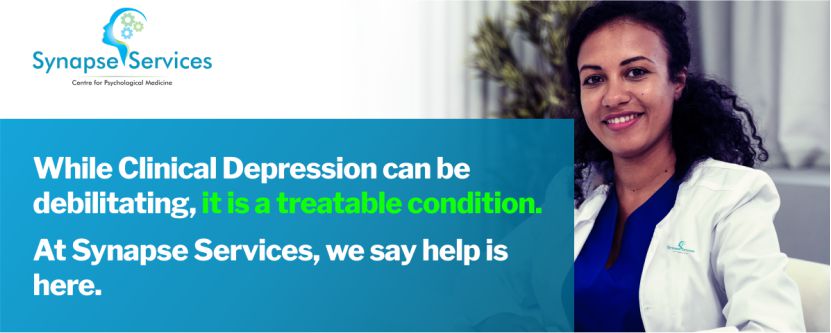
Treatment Options for Clinical Depression
While clinical depression can be debilitating, it is a treatable condition.
Recognizing the urgency in addressing this mental health crisis, Nigeria is gradually enhancing its mental health care services and Synapse services are at the forefront of it. Here are some treatment options available:
1. Psychotherapy: Also known as talk therapy, psychotherapy is an essential component of depression treatment. Cognitive-behavioral therapy (CBT) is commonly used, aiming to change negative thought patterns and behaviors, and develop coping mechanisms. Group therapy, family therapy, and interpersonal therapy are other forms of psychotherapy that may be beneficial
2. Medication: Some individuals with clinical depression may benefit from medication. Selective serotonin reuptake inhibitors (SSRIs) are the most commonly prescribed antidepressants. However, medication should always be prescribed and monitored by a qualified mental health professional.
3. Electroconvulsive Therapy (ECT): In severe cases of clinical depression, where other treatments have proven ineffective, ECT may be considered. ECT involves the controlled application of electric currents to the brain to induce seizures, which can lead to improvements in depressive symptoms.
4.Sufficient Sleep 4. Getting sufficient sleep, and nurturing social connections can have a positive impact on managing depression symptoms.
5. Increased Mental Health Awareness: Raising awareness about clinical depression and tackling the associated stigma is crucial. Public education campaigns and community outreach programs can help correct misconceptions and encourage individuals to seek help.
As we conclude, please bear in mind that clinical depression is a pervasive mental health condition that affects millions of Nigerians. The burden of mental health challenges such as clinical depression is compounded by our cultural perspectives and limited access to quality mental health care services. Be the hand that others need to connect them to the help and support that they need. Contrary to what many people say the symptoms don’t just go away. It requires proper treatment.
Be a part of the heroes working towards destigmatizing depression and ensuring that those in need receive appropriate treatment. This is a menace that is fast spreading, and, one out of the 8 people you know has a presentation that meets the criteria or some of the criteria for the diagnoses of Clinical depression. The question is what are you doing to help them? If you are not infected, you are affected because they live among us. It is crucial to promote a culture of understanding acceptance and support for those who are experiencing depression.
Getting Help
Remember that depression is a medical condition, and like any other illness, it can be treated.
Seek Professional Help: Reach out to a mental health professional. They are here to support you on your journey to recovery.
Recovery is Possible: Many individuals have successfully battled depression. You can too!
At Synapse Services, we say help is here.
Quality mental health care service is here.
Clinical depression is highly treated, and the prognosis is good with treatment.
Suicide is tricky, the day clinically depressed people decide to commit suicide is usually just like any other day.
To learn more about our services and for more inquiries do reach us at:
Website: www.azaleaservices.org
IG- @Synapse_services_ng
Phone Number: 0905 690 6007
Address: Plot 234, Cadzone, Off Norbert E Offor Street, Kado Abuja Nigeria.
P.S. We care about you and your well-being, don’t go through this alone, you’re not alone, we’ve got you.


